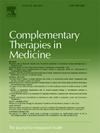The current state of the quality of homeopathic clinical research
IF 3.5
3区 医学
Q1 INTEGRATIVE & COMPLEMENTARY MEDICINE
引用次数: 0
Abstract
Homeopathy is a system of therapeutics that treats disease with highly diluted substances based on the Law of Similars, which holds that “like cures like.” Despite widespread use, homeopathy lacks a comprehensive and robust evidence base.
We examined the state of homeopathic clinical research by critically assessing the overall quality of peer-reviewed, recently published, English-language, homeopathic clinical research in terms of internal, external, and model validity using standard and homeopathic-specific instruments. Further, we convened an international panel of nine experts in research methods and homeopathy to identify gaps in homeopathic research and prioritize areas for future study.
We reviewed 99 clinical research studies targeting a wide range of populations and conditions. Studies were conducted in Western and Asian countries, with the largest number (30 percent) conducted in India. Of the 99 studies reviewed, 85 were controlled trials; 79 of these were randomized. There were many areas where the quality of the studies could be improved. About two-thirds of the 85 controlled trials had either high (42 percent) or unclear (24 percent) risk of bias according to internationally recognized standards for internal validity. Of the 14 observational (cohort) studies, over one-third did not control for important confounders in the outcome analyses. Regarding external validity, adherence was reported in less than a third of studies (n=31). Forty percent of studies (79 % of observational studies) did not report on safety. Regarding model validity, fewer than two-thirds of the studies were consistent with homeopathic principles.
Our expert panel was mixed on whether the homeopathic research literature was missing important populations and/or conditions, and they suggested a variety of priority areas. Panelists also expressed a variety of opinions about the types of homeopathy that should be prioritized for future study but also noted that since homeopathic practice differs by country, each country may have different priorities.
Panelists agreed with the findings of the literature review that the research literature was at least somewhat deficient in all three types of validity. Although our assessment of validity was [by necessity] based only on what was reported, this assessment suggests the need for both better reporting and higher quality research. They recommended the use of reporting guidelines to improve all types of validity, the identification of exemplar studies to help guide researchers to improve internal validity, and, given the limitations of the instruments available to measure external and model validity, that these instruments be validated and configured to provide summary scores. Finally, substantial discussion addressed the need to bring more research expertise into homeopathic studies, both by better training homeopathic researchers and by collaborating with experienced conventional medicine research groups.
顺势疗法临床研究的质量现状。
顺势疗法是一种治疗体系,根据 "同类相治 "的同类物法则,用高度稀释的物质治疗疾病。尽管顺势疗法被广泛使用,但却缺乏全面而有力的证据基础。我们通过使用标准和顺势疗法专用工具,从内部、外部和模型有效性的角度,对经同行评审、近期发表的英文顺势疗法临床研究的整体质量进行了严格评估,从而考察了顺势疗法临床研究的现状。此外,我们还召集了一个由九位研究方法和顺势疗法专家组成的国际小组,以确定顺势疗法研究中的不足之处,并优先考虑未来的研究领域。我们审查了 99 项针对不同人群和病症的临床研究。研究在西方和亚洲国家进行,其中在印度进行的研究最多(30%)。在所审查的 99 项研究中,85 项为对照试验,其中 79 项为随机试验。在许多方面,研究的质量还有待提高。根据国际公认的内部有效性标准,在 85 项对照试验中,约有三分之二的偏倚风险较高(42%)或不明确(24%)。在 14 项观察性(队列)研究中,超过三分之一的研究在结果分析中没有控制重要的混杂因素。在外部有效性方面,不到三分之一的研究(31 项)报告了坚持治疗的情况。40%的研究(79%的观察性研究)未报告安全性。关于模型有效性,只有不到三分之二的研究符合顺势疗法原则。对于顺势疗法研究文献是否遗漏了重要人群和/或病症,我们的专家小组意见不一,并提出了各种优先领域。专家组成员还就今后应优先研究的顺势疗法类型发表了各种意见,但同时也指出,由于各国的顺势疗法实践各不相同,因此每个国家可能有不同的优先研究领域。专家组成员同意文献综述的结论,即研究文献在所有三类有效性方面至少存在一定程度的不足。虽然我们对有效性的评估[出于必要]仅以报告内容为基础,但这一评估表明,我们需要更好的报告和更高质量的研究。他们建议使用报告指南来提高所有类型的有效性,确定模范研究来帮助指导研究人员提高内部有效性,同时,考虑到现有测量外部有效性和模型有效性的工具的局限性,这些工具应经过验证和配置以提供总分。最后,大量的讨论涉及到为顺势疗法研究引入更多专业研究知识的必要性,既要更好地培训顺势疗法研究人员,又要与经验丰富的传统医学研究小组合作。
本文章由计算机程序翻译,如有差异,请以英文原文为准。
求助全文
约1分钟内获得全文
求助全文
来源期刊

Complementary therapies in medicine
医学-全科医学与补充医学
CiteScore
8.60
自引率
2.80%
发文量
101
审稿时长
112 days
期刊介绍:
Complementary Therapies in Medicine is an international, peer-reviewed journal that has considerable appeal to anyone who seeks objective and critical information on complementary therapies or who wishes to deepen their understanding of these approaches. It will be of particular interest to healthcare practitioners including family practitioners, complementary therapists, nurses, and physiotherapists; to academics including social scientists and CAM researchers; to healthcare managers; and to patients. Complementary Therapies in Medicine aims to publish valid, relevant and rigorous research and serious discussion articles with the main purpose of improving healthcare.
 求助内容:
求助内容: 应助结果提醒方式:
应助结果提醒方式:


